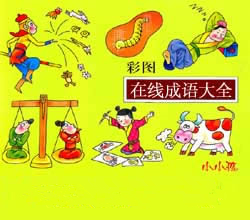英文读后感之茶花女读后感
“Camille”
I read the Chinese version of “Camille” a few years ago. At that time I was deeply moved by the main character Marguerite Gautier. “Camille” or “The Lady of the Camellias” by Alexandre Dumas, fils, is the story of Marguerite Gautier, a young courtesan, or kept woman, in Paris in the mid 1800's, and how she falls in love with a young man, Armand Duval, and then tries to escape from her questionable past. Unfortunately, it comes back to haunt her and she ends up returning to that life and dies painfully and alone, but with the knowledge that she was a noble woman at heart. When I first began to read the book, I did not care for Marguerite or her attitude or lifestyle, but as I got further into the narrative, I realized that her saucy attitude was a front to cover the lonely woman that she really was. She felt used, abused and unloved, until the gentle Armand Duval came into her life and showed her that he loved her as a person and not for what she could do for him. It must have taken GREat courage for Marguerite to leave the life she had lived for so long, knowing all along that it was probably too good to be true and would not last indefinitely. And it also showed that Marguerite really loved Armand Duval for she could even change herself for him.
However, happiness didn’t last for long. When M. Duval, Armand's father, came to her, pleading for her to leave Armand to save both Armand's reputation and that of his younger innocent sister, Marguerite saw a way to become pure of heart, if not in body. She felt that it was her duty, because she loved Armand so much, to do this even though it meant giving up her own happiness and hurting Armand temporarily. She reluctantly returned to her former life, knowing that some day Armand would forgive her. Sadly, she died in debt and basically alone, except for her one female friend, Julie Duprat, who helped her during her illness. She had her journal sent to Armand after her death, explaining why she had made the choices she had. I think Dumas's last few lines about Marguerite being the exception, not the rule were quite true, and I also aGREed with his view that while her lifestyle could not be condoned, we as a society assume that all of these type of women are cold and heartless, while this may not always be the case. A person can make the wrong choices in life when they are young, and try to redeem themselves, but sometimes past situations prevent them from changing their lives, even though they desperately wish to do so. This applies to both men and women in many different types of circumstances: involvement in crime; drug or alcohol abuse; gambling; prostitution; financial problems; poor marriage choices; etc. And this is the fact, which exists in the whole society.
As far as the other characters in the book, I think Marguerite was right in saying that no one truly cared about her, but only wanted something from her, the only exceptions being Armand and Julie Duprat. Of course, the Comte de G. and Comte de N. wanted her body and appearance. The Duke needed to “wake up and smell the coffee” and realize that she could never replace his dead daughter. If he truly cared, he could have helped her leave her lifestyle without “keeping” her himself. And lastly, Prudence was a blood-sucking leech who used Marguerite almost worse than the men. I also think she was jealous of the fact that Marguerite had so much more courage than herself and someone truly loved her.
热门作文成语素材
- 哀感顽艳 原意是指内容凄切,文辞华丽,使愚笨和聪慧的人同样受感动。后多用来指艳情的小说、戏曲、电影中的感人情节。
- 分我杯羹 羹:肉汁。楚、汉相争时,刘邦答项羽的话。比喻从别人那里分享一分利益。
- 分茅裂土 原指古代帝王分封诸侯时举行的仪式。后称分封诸侯。
- 百感交集 感:感想;交:同时发生。各种感触交织在一起。形容感触很多,心情复杂。
- 诽誉在俗 诽:指诽谤;誉:赞扬;俗:风气、习惯。诽谤或赞扬在于当时的风习。后来引申指风气、习惯的作用非常大。
- 分毫不爽 比喻没有丝毫差错。
- 挨肩擦背 形容人多拥挤。
- 肥马轻裘 裘:皮衣。骑肥壮的马,穿轻暖的皮衣。形容阔绰。
- 不成器 器:指人的度量、才干。不能成为有用的器物。多用以指人气质平庸,不能有所成就,没有什么出息。有时也指不学好,自甘堕落。
- 不苟言笑 苟:苟且,随便。不随便说笑。形容态度庄重严肃。
- 不露圭角 圭角:圭玉的棱角。比喻才干不外露。
- 不蔓不枝 既不蔓延,也不分支。比喻说话或写文章简明扼要,不拖泥带水。
- 方领矩步 方领:直的衣领;矩步:行步合乎规矩。指古代儒者的服饰和容态。
- 非分之想 非分:不属自己分内的。妄想得到本分以外的好处。
- 拔树撼山 拔起大树,摇动高山。形容声势极大。
